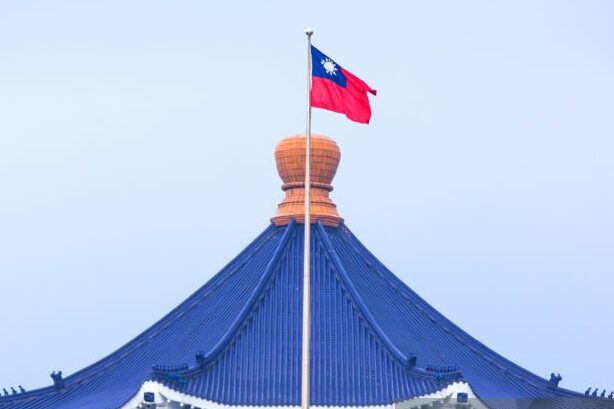
State Department Taiwan Independence Policy Tweaked Again—What It Means for U.S.-China Relations
The U.S. State Department recently removed the phrase “we do not support Taiwan independence” from its official fact sheet on U.S.-Taiwan relations, a move that Taiwan has welcomed with optimism. While the change doesn’t officially alter U.S. policy, it reflects a growing warmth in U.S.-Taiwan relations, which has long been a sensitive issue between Washington, Taipei, and Beijing.
State Department Taiwan Independence’s Positive Response
Taiwan’s Ministry of Foreign Affairs expressed appreciation for the update but refrained from directly commenting on the removal of the phrase. In a statement to the Associated Press, the ministry noted that the updated page presents a “positive and friendly” message, reinforcing the strong partnership between Taiwan and the United States.
For Taiwan, which operates as a self-governing democracy, U.S. support is crucial. While the U.S. has long been seen as an unofficial ally, it does not formally recognize Taiwan as a separate state from mainland China. This balancing act has kept Taiwan-China tensions high for decades, with Beijing maintaining that Taiwan remains part of its territory and could be brought under its control—by force if necessary.
China Reacts with Criticism
Predictably, China was not pleased with the State Department’s revision. The Chinese government views any shift in U.S. language on Taiwan as a potential sign of support for Taiwanese independence, something it strongly opposes.
Chinese Foreign Ministry spokesperson Guo Jiakun condemned the change, urging the U.S. to “stop emboldening and supporting Taiwan independence” and warning that such moves could harm China-U.S. relations and regional stability in the Taiwan Strait.
This is not the first time the State Department has adjusted its wording on Taiwan. In May 2022, the phrase was briefly removed but reinstated a few weeks later following Chinese protests. It remains unclear if this recent revision signals a policy shift, or if it will be reversed again under diplomatic pressure.
Implications Under the Trump Administration
With Donald Trump expected to take a tougher stance on international trade, Taiwan is looking to deepen its cooperation with the U.S.. Taiwan’s President Lai Ching-te has already pledged to strengthen ties, particularly in the semiconductor industry, an area where Taiwan plays a leading global role.
Trump’s economic policies, including his reciprocal tariff plan, could also influence how Taiwan navigates its relationship with both the U.S. and China. While the U.S. has historically walked a fine line in its Taiwan policy, any new trade agreements or defense commitments could have long-term consequences for the region.
The State Department has not yet clarified why the phrase was removed or whether this signals an official shift in policy. However, with Taiwan-China tensions already high, this development adds another layer of complexity to an already delicate situation.
Tags:
state department Taiwan independence, Donald Trump, Lai Ching-te state department Taiwan, Taiwan-China tensions
